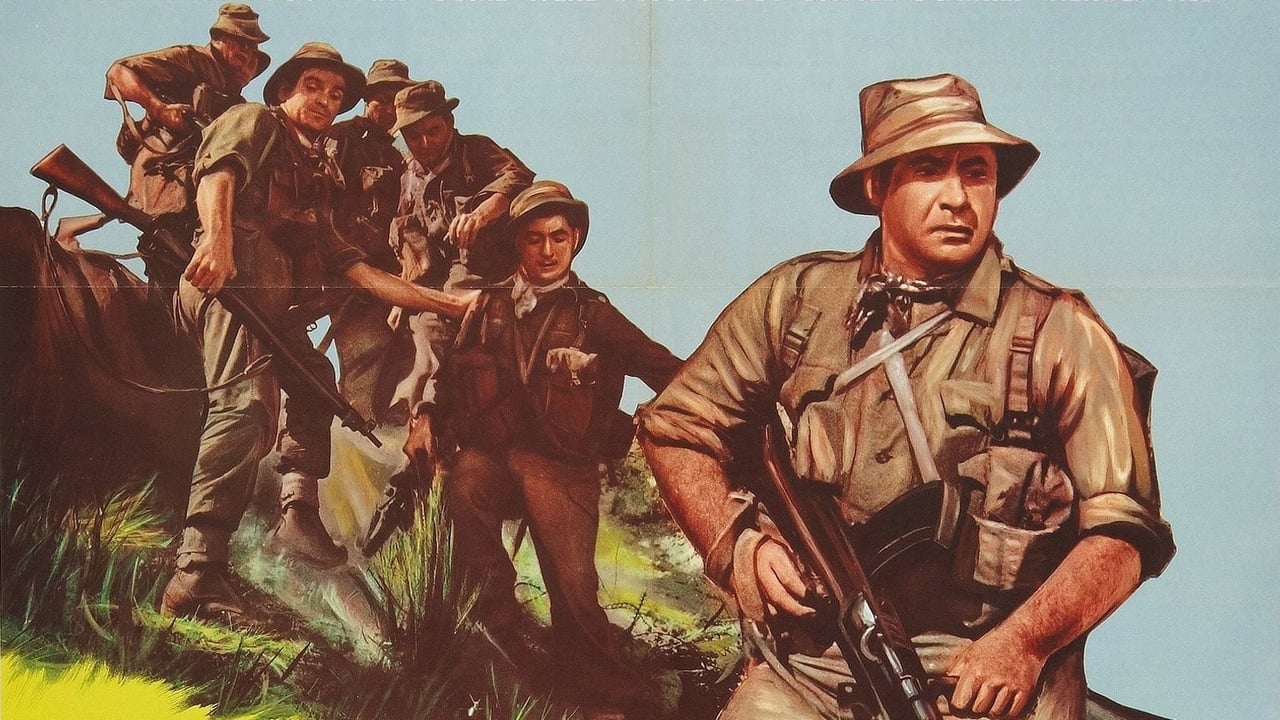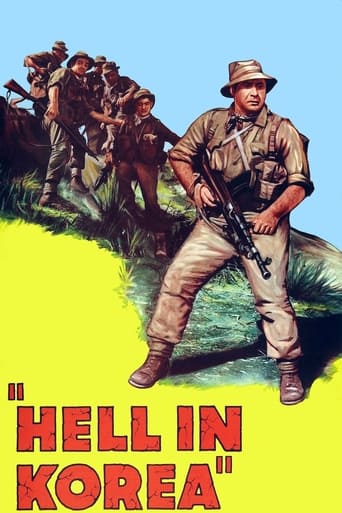Interesteg
What makes it different from others?
Anoushka Slater
While it doesn't offer any answers, it both thrills and makes you think.
Lachlan Coulson
This is a gorgeous movie made by a gorgeous spirit.
Marva
It is an exhilarating, distressing, funny and profound film, with one of the more memorable film scores in years,
malcolmgsw
So says Harry Landis in a wonderful moment.Well it would have been more exciting than the moribund match against Norwich yesterday.Anyway so far as I am aware this is one of only two British films about the Korean conflict,the only other being the Yangtze Incident.It has about all the ingredients that you would expect from a film about a unit surrounded and out of contact with its base.So we have the cheerful comments,the hard man,the coward who dies to redeem himself,the experienced sergeant and the inexperienced commanding officer.They are talking about 60000 watching Arsenal play Chelsea at Highbury.Anyway while there are no real surprises it is well made and fairly entertaining.The beginning of Michael Gaines very long film career.
JohnHowardReid
Our main interest in this film today lies in its cast. Admittedly, the star, George Baker, has now lapsed into well-deserved obscurity, but it's interesting to keep our eyes on Michael Caine who can be seen right throughout the film. He has only a few lines of dialogue, however, and is so colorless that he reveals not one iota of star potential. Robert Shaw has an equally small role, but at least he makes something of it. Stephen Boyd's part is not much larger -- but there is no mistaking him! On the other hand, Stanley Baker hands in his usual glum performance. Perhaps he was miffed that his role is nowhere near as large as his third billing would suggest.Direction is smooth, but -- aside from one or two striking compositions in the Chinese temple -- totally unimaginative. Other credits are equally competent bur undistinguished. Admittedly, the action scenes are staged excitingly enough, and production values are quite lavish by the humble standards of the British "B".
Theo Robertson
The Korean war seems to have posed a bit of a problem with film makers . It wasn`t untill Vietnam that screenwriters and directors tried to profound statements on the nature of conflict and wear their anti war sentiments on their sleeves. To all intents and purposes you could rewrite any Korean war film script without any problem . Indeed you could change the place names and you`d have the exact same story , and that`s the problem with A HILL IN KOREA , it could be set during the North African campaign of 1941 or the Burma campaign of 1942 or the Italian campaign of 1944 and it`d be the exact same film. The only telling difference is if it`d been set during the Second World War it would have starred John Mills.It`s the casting of this film that makes it memorable, we have early roles for stalwarts of British cinema in the 60s and 70s: George Baker , Harry Andrews, Stanley Baker and Percy Herbert . And very early appearances by Robert Shaw , Stephen Boyd and Michael Caine ( Caine actually being an UN soldier in the Korean war ) who would all make it big in Hollywood. Sadly that`s the only memorable aspect on this film about " The forgotten war " . Forgotten that is except for the people who survived it
stryker-5
It's 1951, and the Allies are on the retreat from the Yalu, with massive Chinese forces pursuing them south. A small unit of British troops is sent to reconnoitre a Korean village, and gets caught by two advancing Chinese battalions.For all the formulaic treatment of soldiers maintaining a chirpy stoicism in adverse combat conditions, this film does have a certain gritty realism. George Baker as the rookie lieutenant burdened by command, and Harry Andrews as the tough old sergeant, are first-class. Don't blink, or you'll miss a very young Michael Caine as Private Lockyer, lamenting the death of Corporal Ryker (Stanley Baker).The film works as a simple narrative of men under fire, but it certainly has some shortcomings. The narration which launches events may save the time and effort of explaining the plot, but would it not have been better for this information to emerge naturally out of the drama? When the hut explodes, there is a very obvious jump-cut. During the interval needed to get the actor out of the danger area, someone jolted the camera! Would the Chinese soldiers, even with their advantage in limitless canon-fodder, attack so recklessly across open, flat ground? At one point, close-ups are inserted to enhance the human reactions of the soldiers, but the trouble is, the lighting conditions do not match those of the master shot. Once the British soldiers retreat to the temple on the hill, the whole proceedings become totally studio-bound, with Shepperton fibreglass passing for buddhist architecture. The air strike relies too heavily on monotonously-repeated library footage of American planes. When the ending comes, it is a surprise in the wrong sense - the resolution is unconvincing, almost as if the film-makers didn't know how to extricate the soldiers. Surely a few bombs wouldn't clear the Chinese away for miles around?Ronald Lewis plays Wyatt, the misfit who didn't want to be a soldier and who gets everything wrong. This character is needed in one sense, because there has to be some internal tension within the British camp, but Wyatt is not well done. His apostasy is overly-dramatic, and his immolation utterly unbelievable. This attempt to inject gaudy emotion into a basically stiff-upper-lip story just doesn't come off.Verdict - Interesting 1956 British 'take' on recent war which ultimately succeeds, despite its flaws.

